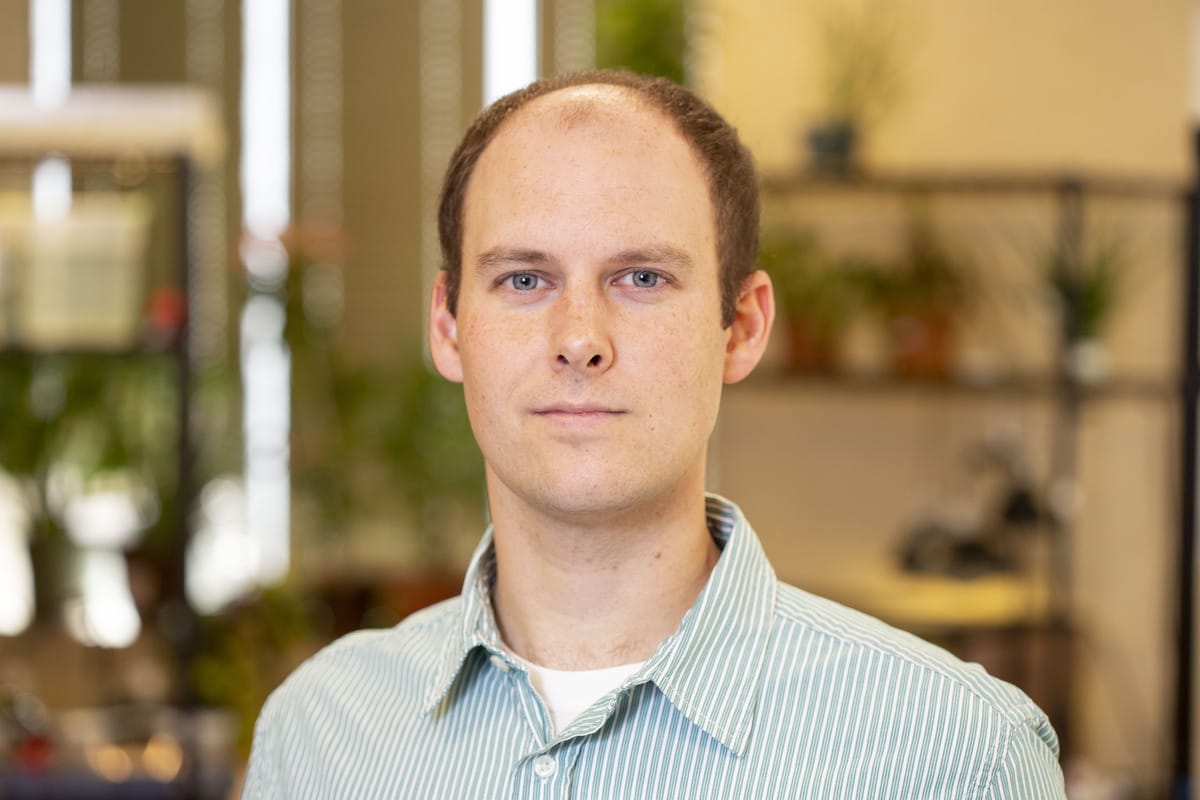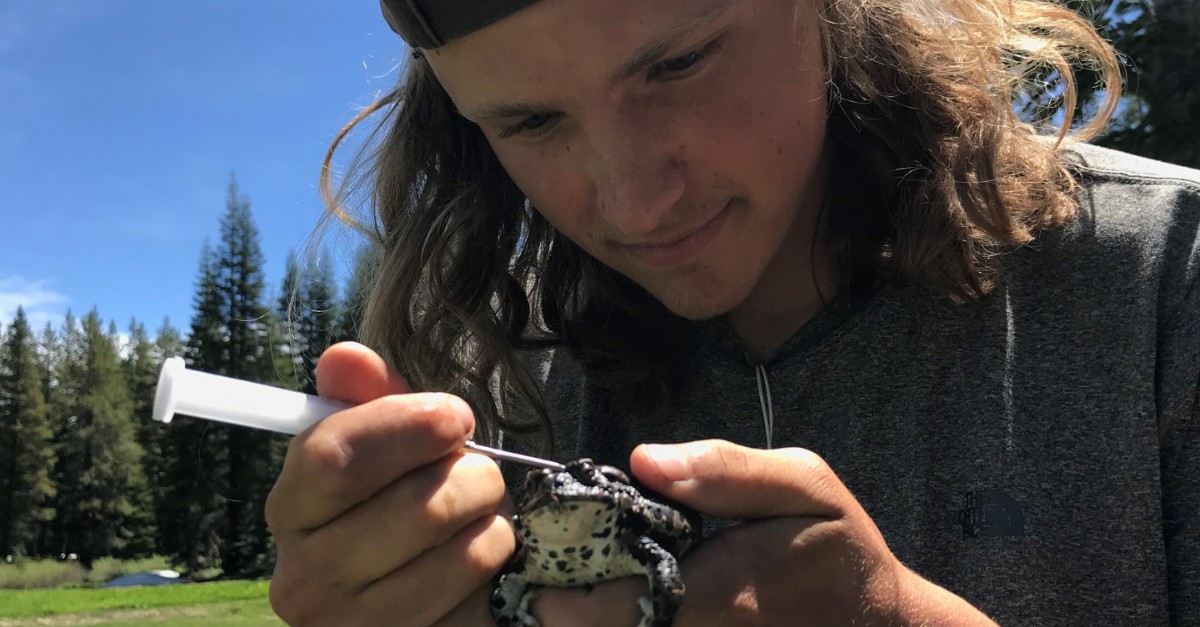Van Andel Institute for Education (VAI) strives to foster a love of learning in every student who walks through our doors. Whether they join us for Science on Saturday or attend one of our afterschool cohorts, our mission is to teach them how to think and act like a scientist. So, it’s incredibly rewarding when we hear how a former student has pursued their love of science and is using it to make a positive impact on the world!
Eli Bieri is a former After School cohort student who was recently awarded a Fulbright scholarship for work with amphibians. A passionate scientist with boundless curiosity, Eli sat down with VAI’s Randy Schregardus and Ryan Duncan to discuss his time in VAI’s Afterschool Cohort and how it impacted his love of learning:
What would you say first inspired your passion for science?
“I remember hearing toad calls when I was a little kid in the summertime from my back yard and I was just innately drawn to that noise. From then on, I spent so much free time just wading through ponds and swamps and looking for frogs and snakes or turtles. Anything I could get my hands on really.”
“When VAEI came along it really felt like the perfect time because I was old enough to understand that this was something that I could make a career out of, and it felt like I could channel that curious energy into something productive which was also fun.”
Was there anything about your time with VAI that was particularly memorable?
“I remember I was doing this project where I was testing what effect common pesticides or herbicides would have on African Clawed Frogs. Marty Coon who was the instructor at the time – what I really loved about that project was that I felt he really treated me like a scientist. I never felt as though he was training the kids to one day be scientists, he was like, ‘You are scientists. You’re doing science’. That’s the kind of thinking that translates into a career in science and I’m really grateful for that.”
Outside of VAI, were there any other people who inspired your love for science?
“Yeah, I think along the way a lot of scientists talk about particular teachers. I had one biology teacher in high school who was just so passionate about science. He and I really clicked and ended up running the Sustainability Club together. He really pushed me to continue doing science. His name was Kevin Randall at Grandville High School. I also had some pretty amazing professors in college.”
Can you tell us about the process of becoming a Fulbright Scholar?
“The program is funded by the US State Department and the Australian government. One of the things they are really looking for is this cross-cultural exchange, so in the application process you really have to demonstrate how you’ll collaborate through cultural barriers. It was actually really fun thing for me because collaboration through science is something I strive to do.”
What about the future? What do you hope to pursue after the program?
“I really want to work in land management creating public policy or designing studies in amphibian conservation. I worked for the forest service two summers ago in California with a crew that was surveying endangered frogs. My boss’s title was Amphibian Biologist for the US Forest Service, and that seems like a dream job. That job was so fun, and I felt that I had to pinch myself each day just knowing that I was getting paid to go out and catch frogs in the mountains. I could definitely see myself working in the forest or parks service.”
What advice do you have for students who want to pursue careers in STEM?
“Something that taught me a lot was having the confidence to reach out to people that inspire you. If you’re interested in butterflies, find someone who researches them and reach out to them. A lot of times we put people on a pedestal. We think they won’t want to talk to us because, ‘I’m just a 14-year-old kid’, but I think adults are really open to mentoring young students. So always reach out to people, the worst that could happen is that they just never respond!”

